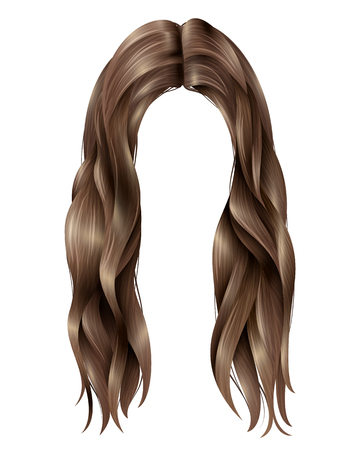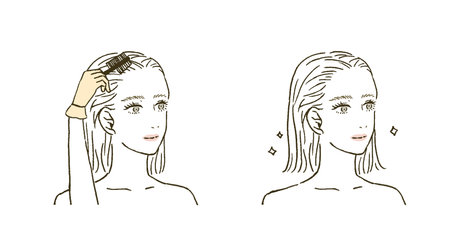Understanding Hair Colouring in the UK
If you’re considering a fresh look or simply want to revive your current style, understanding the essentials of hair colouring in the UK is a must. Here, we’ll explore everything from popular techniques to the unique challenges posed by the British climate, and help you make informed choices between natural and synthetic dyes.
Popular Hair Colouring Techniques
The UK has a vibrant hair scene, with salons offering a range of colouring options. The most sought-after techniques include:
| Technique | Description | Best For |
|---|---|---|
| Balayage | Freehand painting for a sun-kissed, natural effect | Low-maintenance highlights |
| Ombre | Gradual colour transition from roots to tips | A bold, statement look |
| Highlights/Lowlights | Strands are lightened or darkened for depth and dimension | Adding texture and movement |
| Full Colour | All-over single shade application | Dramatic change or grey coverage |
Natural vs. Synthetic Dyes: What’s Best for You?
The choice between natural and synthetic dyes often depends on lifestyle preferences and sensitivities. Here’s a quick comparison:
| Dye Type | Key Ingredients | Main Benefits |
|---|---|---|
| Natural (e.g., henna, herbal blends) | Plant-based extracts, essential oils | Milder on scalp, eco-friendly, gentle results |
| Synthetic (e.g., permanent box dyes) | Chemical pigments, ammonia or peroxide | Long-lasting colour, wider shade range, effective grey coverage |
The Impact of British Weather on Your Colour
The unpredictable British weather—think endless drizzle and occasional bursts of sunshine—can impact how your hair colour looks and lasts. Humidity may cause dyed hair to fade more quickly or develop brassy tones, while hard water can dull vibrancy over time. To keep your colour looking fresh, it’s wise to use colour-safe shampoos and protective sprays when stepping out into the elements.
2. Current Colour Trends Across Britain
When it comes to hair colour in the UK, each region brings its own flair and personality to the table. From the chic streets of London to the vibrant avenues of Manchester, let’s explore what’s making waves this season.
London: The Balayage Capital
In the heart of the capital, balayage remains the go-to technique for a natural, sun-kissed finish. Londoners are loving subtle blends that give dimension and depth without appearing too dramatic. Think soft caramels, honey blondes, and delicate ash tones—perfect for both city professionals and creative spirits alike.
Manchester: Bold Hues & Statement Shades
Up north in Manchester, there’s a clear appetite for experimentation with colour. Pastel pinks, deep violets, and electric blues are all on trend, with locals favouring expressive looks that turn heads on the high street. These daring shades offer a playful twist on classic dye jobs and reflect the city’s creative energy.
Edinburgh & Glasgow: Rich Reds & Copper Tones
Scottish cities are embracing their fiery side with an influx of rich reds, coppers, and auburns. These shades complement fair complexions beautifully and echo the natural landscape’s autumnal palette—a nod to both tradition and modern style.
This Season’s Top Trending Colours
| Region | Trend Colour | Style Inspiration |
|---|---|---|
| London | Balayage Blondes & Soft Caramels | Effortless city chic |
| Manchester | Pastel Pinks & Vivid Blues | Youthful creativity |
| Edinburgh/Glasgow | Copper Reds & Auburns | Natural warmth |
What’s Next?
This season, expect a continued love affair with multidimensional tones—think glossed brunettes and whisper-light highlights. There’s also a growing movement towards more sustainable and gentle colouring methods across salons in Britain, keeping your hair feeling as fresh as it looks.

3. Choosing the Right Shade for You
Finding your perfect hair colour is a delightful journey, but it’s essential to choose a shade that complements your skin tone and fits seamlessly into your lifestyle. In the UK, where natural light can vary dramatically from city to countryside and season to season, selecting the right hue is both an art and a science. British style often favours understated elegance with a twist—think rich brunettes, creamy blondes, and subtle copper tones. Below, we’ve created a handy table to help you match popular shades with different British skin tones and lifestyles.
| Skin Tone | Recommended Shades | Lifestyle Fit |
|---|---|---|
| Fair & Cool Undertones | Ash blonde, cool brown, soft rose gold | Low-maintenance; ideal for busy Londoners or students |
| Fair & Warm Undertones | Honey blonde, golden brown, light copper | Brightens complexion; perfect for creative industries |
| Medium & Olive Tones | Rich chocolate brown, caramel highlights, auburn | Works well for professionals wanting subtle change |
| Darker Skin Tones | Deep espresso, blue-black, vibrant burgundy | Makes a statement; great for trendsetters in urban areas |
If you’re unsure which direction to go in, consider your wardrobe palette and daily routine. For instance, if you often wear cool-toned clothing or minimal makeup, as is common in many parts of Britain, ashier shades may feel more harmonious. If you love to experiment with colour (hello, festival season!), don’t be afraid to try bold hues—but always consult a professional for advice on maintaining hair health.
Expert Tip: Book a consultation at your local salon—many UK stylists offer free or low-cost shade-matching sessions. Bring inspiration photos and ask about maintenance levels to ensure your chosen colour fits effortlessly into your everyday life.
4. Safe and Sustainable Hair Colouring
When it comes to hair colouring in the UK, more of us are making conscious choices that care for both our locks and the planet. The demand for non-toxic, vegan, and eco-friendly hair dyes is on the rise, with British brands leading the charge in creating safe alternatives that dont compromise on vibrancy or style.
Why Choose Non-Toxic and Eco-Friendly Options?
Traditional hair dyes often contain harsh chemicals like ammonia, parabens, and resorcinol, which can be damaging to your hair and scalp over time. Opting for cleaner formulas reduces the risk of irritation while minimising your environmental footprint—a win-win for you and the world around you.
Top Non-Toxic & Vegan Hair Dye Brands in the UK
| Brand | Main Features | Where to Buy |
|---|---|---|
| Herb UK (Naturtint) | Ammonia-free, plant-based ingredients, cruelty-free | Holland & Barrett, Boots |
| Bleach London | 100% vegan, bold colours, recycled packaging | Superdrug, Lookfantastic |
| Tints of Nature | Certified organic extracts, low chemical content, vegan-friendly | Online, health shops |
| Lush Henna Hair Dyes | Henna-based, handmade, minimal packaging | Lush stores nationwide |
| Josh Wood Colour | No ammonia or PPD, gentle on sensitive skin, salon-quality results at home | Sainsburys, online shop |
Sustainable Salon Practices to Look For
- Recycling Initiatives: Seek salons participating in hair recycling programmes or using recyclable foils and gloves.
- Water-Saving Techniques: Many UK salons now use water-efficient washing systems to reduce waste.
- Cruelty-Free Products: Ask your stylist about vegan dyes and cruelty-free aftercare products.
- Eco Packaging: Look for brands that use biodegradable or recycled materials for their product packaging.
Nourishing Your Hair Post-Dye: Expert Tips for Healthy Colour
- Hydration is key: Use a sulphate-free shampoo and a hydrating conditioner to lock in moisture and prolong your colour’s life.
- Avoid excessive heat: Air-dry whenever possible or keep styling tools on a lower setting to prevent damage.
- Pamper with masks: Treat your hair weekly with nourishing masks containing natural oils like argan or coconut.
- Regular trims: Keep your ends fresh and prevent split ends by scheduling trims every 6-8 weeks.
- Sunscreen for strands: If you’re out and about (especially during those rare sunny UK days!), spritz a UV protectant spray onto your hair.
Your Path to Beautiful, Sustainable Colour Starts Here!
Caring for your hair doesn’t mean compromising on ethics or results. With an ever-growing range of non-toxic and sustainable dyes available across the UK—whether you’re shopping at Boots or booking into an eco-conscious salon—you can achieve radiant colour that’s kind to both you and the environment. Embrace nature-inspired hues and enjoy vibrant locks with peace of mind!
5. Caring for Colour-Treated Hair
Once you’ve achieved your dream hue, looking after colour-treated hair becomes your top priority. The unpredictable British weather—think damp drizzle, occasional heatwaves, and even hard water—can all impact the longevity of your gorgeous shade. Here are some practical aftercare tips to help you maintain that salon-fresh vibrancy with a blend of trusted UK-based products and wholesome natural remedies.
Top Tips for Long-Lasting Colour
- Go Sulphate-Free: Sulphates can strip colour, so reach for gentle shampoos made specifically for dyed hair.
- Wash Less Frequently: Try to limit hair washing to two or three times a week to preserve pigments and prevent fading.
- Lukewarm Water Only: Hot water opens up the cuticle and washes away colour molecules. Stick with tepid or cool rinses instead.
- UV Protection: Even on cloudy days, UV rays can dull your colour. Use sprays or leave-in conditioners with built-in UV filters.
- Regular Deep Conditioning: Hydration is key! Treat your locks to a weekly mask or oil treatment to restore softness and shine.
Best UK-Based Aftercare Products
| Product | Type | Main Benefit | Where to Buy |
|---|---|---|---|
| Aussie Colour Mate Shampoo & Conditioner | Sulphate-Free Duo | Keeps colour vibrant & hair glossy | Boots, Superdrug |
| LOréal Elvive Colour Protect Purple Mask | Toning Mask | Counters brassiness in blonde/grey hair | Sainsbury’s, Tesco |
| Bumble & Bumble Colour Minded UV Protective Polish | Leave-In Serum | Guards against sun damage and fading | Selfridges, John Lewis |
| Noughty To The Rescue Intense Moisture Treatment | Natural Deep Conditioner | Repairs dryness without harsh chemicals | Holland & Barrett, Amazon UK |
| Kitsch Satin Pillowcase | Pillowcase Accessory | Minimises friction and breakage overnight | Cult Beauty, Lookfantastic |
Nourishing Natural Remedies (DIY-Friendly)
- Coconut Oil Mask: Warm up a tablespoon of coconut oil, apply root-to-tip, leave for at least 30 minutes (or overnight), then rinse well. This helps replenish lost moisture post-colouring.
- Apple Cider Vinegar Rinse: Dilute one part apple cider vinegar with four parts water. Use as a final rinse after shampooing to seal cuticles and boost shine naturally.
- Aloe Vera Gel: Apply pure aloe vera gel directly to lengths and ends for soothing hydration without weighing hair down.
Your Fresh Colour Routine: Quick Reference Guide
| Step | Description |
|---|---|
| 1. Wash Gently & Less Often | Sulphate-free shampoo; 2-3 times weekly max |
| 2. Condition Deeply | Treat with masks or oils once a week |
| 3. Protect from Sun/Heat | Use UV sprays & heat protectants before styling |
| 4. Sleep Smart | Satin pillowcase or loose plaits overnight |
Naturally Radiant Results – The British Way!
A splash of care goes a long way in keeping your colour luminous between touch-ups. Whether you’re flaunting a bold copper or a subtle balayage, these British favourites and natural solutions will help you love your locks every single day—rain or shine!
6. Expert Insights and Pro Tips
When it comes to achieving that fresh-from-the-salon look at home, there’s nothing quite like hearing directly from top British stylists. We’ve gathered some natural, no-nonsense advice and pro tips that celebrate the UK’s unique approach to hair colour—balancing individuality, healthy hair, and a touch of understated glamour.
Hear from the Experts: Salon vs. Home Dyeing
| Situation | Expert Advice |
|---|---|
| Covering Greys | “For a quick root touch-up or blending first greys, at-home kits can work wonders. Choose shades close to your natural tone for best results.” – Emily James, London Colourist |
| Major Colour Change | “Always see a professional for drastic changes like going platinum blonde or vivid fashion colours. These transformations require skill and an expert eye.” – Tom O’Connell, Manchester Stylist |
| Balayage & Highlights | “Hand-painted techniques like balayage are best left to the pros. At-home kits rarely deliver the subtlety that defines this style.” – Priya Patel, Birmingham Specialist |
Naturally Brilliant: Top Tips for Healthy, Beautiful Colour
- Patch Test Always: Even gentle formulas can cause reactions—do a patch test 48 hours in advance.
- Go Gentle: Opt for ammonia-free dyes and nourishing ingredients like argan oil or chamomile for a naturally vibrant finish.
- Section Smartly: Divide your hair into four sections for even application, just like the pros do.
Caring for Your Colour: Post-Dye Essentials
- Use sulphate-free shampoos made for coloured hair—these help maintain vibrancy and prevent fading.
- A weekly hydrating mask with British botanicals (like nettle or rosemary) can restore shine and keep hair strong.
When to Call in the Pros?
If you’re unsure about your technique, attempting a big colour shift, or notice any damage, don’t hesitate to book a consultation with a trusted local salon. The British hairdressing scene is renowned for its expert touch—sometimes a professional hand is simply unbeatable for flawless, confidence-boosting results.
7. FAQs and Common Concerns in the UK
Embarking on your hair colouring journey in the UK? You’re not alone—many have questions about everything from regulations to expert tips for a fresh, natural look. Here’s a handy guide to help you navigate the most common queries and concerns:
Are there specific UK regulations for hair dyes?
Yes, all hair dyes sold in the UK must comply with strict safety standards set by UK and EU regulations. Look for products that are approved and labelled for UK use, which ensures ingredients meet health and safety requirements.
What should first-time colourers know?
If you’re new to hair dye, keep these essentials in mind:
| Tip | Details |
|---|---|
| Patch Test | Always perform a patch test 48 hours before application to check for allergies. |
| Consult a Pro | If uncertain, book a session with a professional colourist for advice tailored to your hair type and goals. |
| Aftercare Matters | Use sulphate-free shampoos and conditioners designed for coloured hair to keep your shade fresh and vibrant. |
| Natural Light Check | Assess your colour result in natural daylight—it gives the truest reflection of your new hue! |
How do I choose the right shade for my skin tone?
The British climate can affect how colours appear—cooler undertones often suit ashier shades, while warmer skin tones glow with honey or copper hues. Ask your stylist for advice or try virtual shade tools offered by major brands.
Is it safe to use natural or organic dyes?
The UK has a growing market for natural, ammonia-free, and plant-based dyes. These options are ideal if you prefer gentle ingredients or have sensitivities. Always check labels and consider a strand test before full application.
How often should I refresh my colour?
This depends on the dye type and desired look:
| Dye Type | Refresh Frequency |
|---|---|
| Semi-permanent | Every 4-6 weeks |
| Permanents/Highlights | Every 6-8 weeks (roots may need touch-ups sooner) |
| Toners/Pastels | Every 2-4 weeks as they fade quickly |
What if I want to embrace grey or silver hair naturally?
The “silver fox” trend is thriving across the UK! Many opt to blend their greys with highlights or use toners for a cool finish. Speak with your stylist about transitioning gracefully—embracing your unique style is always in fashion!
Your Fresh Start Awaits!
No matter where you are on your hair colouring journey, remember: British salons and home kits offer safe, creative choices for everyone. Whether you’re exploring bold brights or subtle blends, follow local guidance, consult experts when needed, and let your true self shine through every strand!


